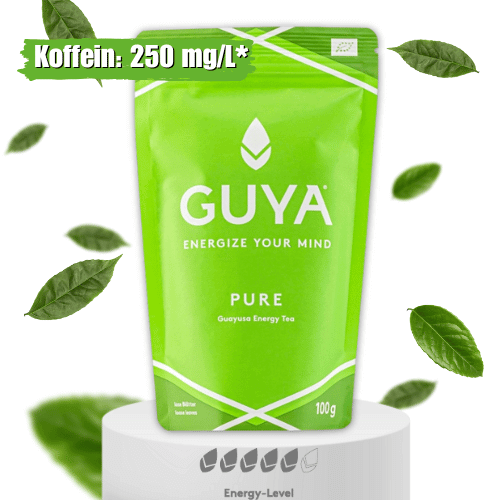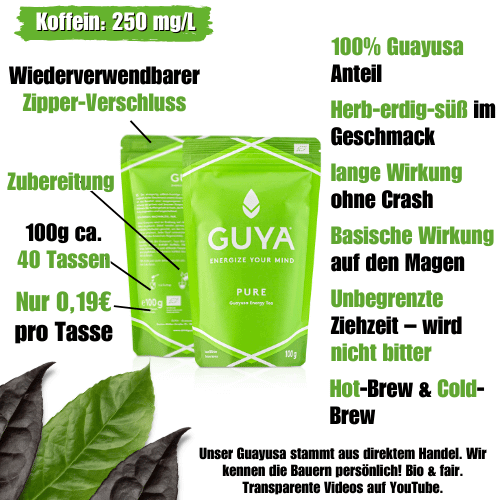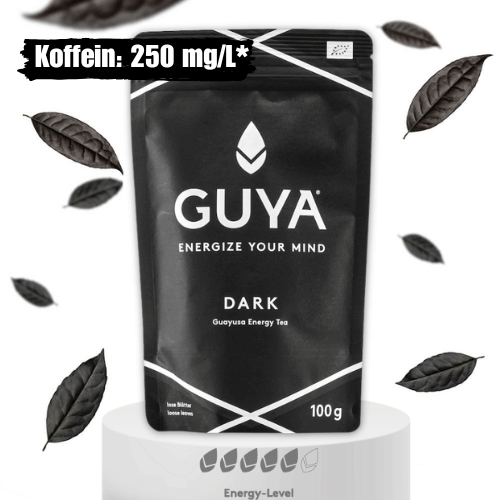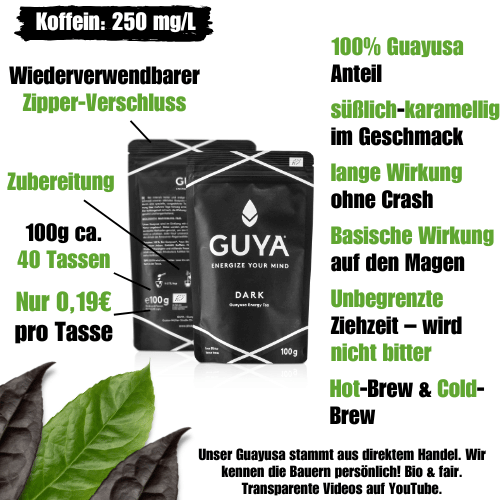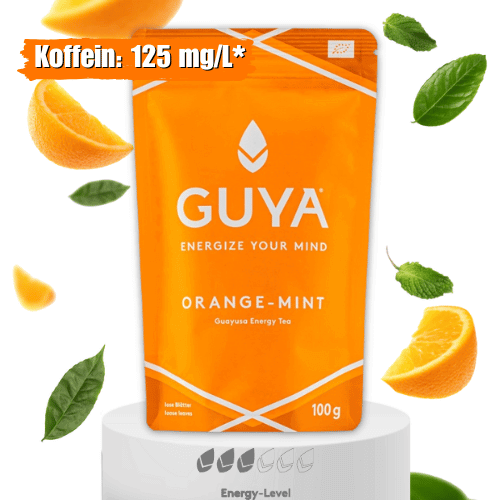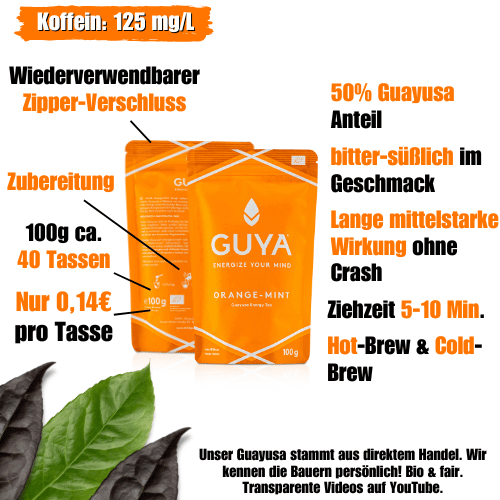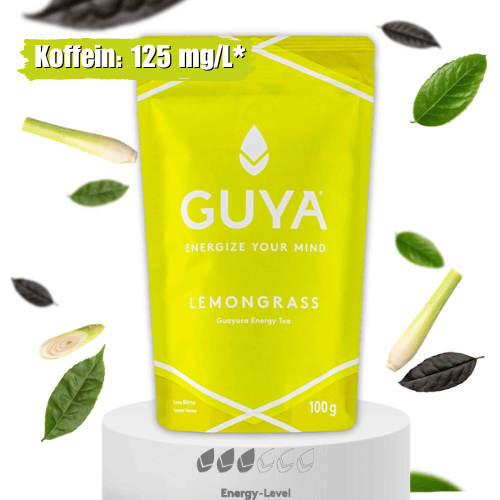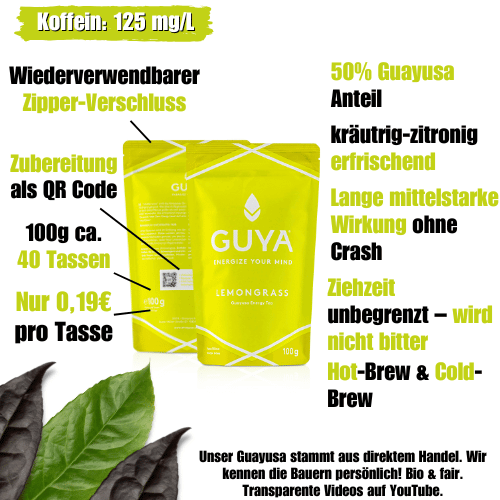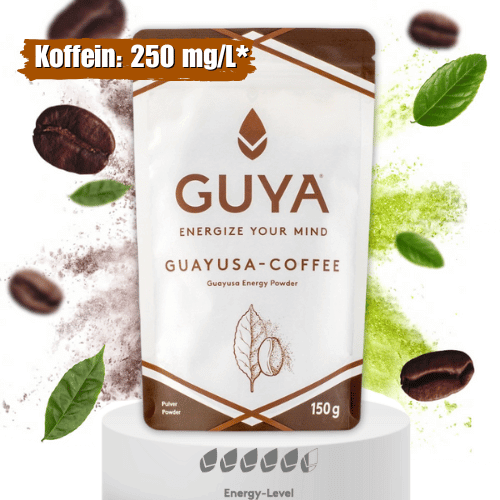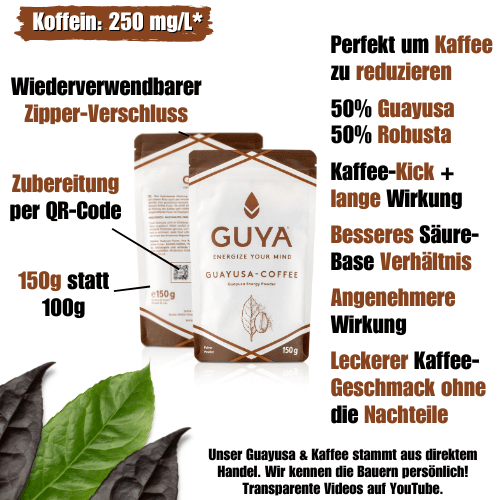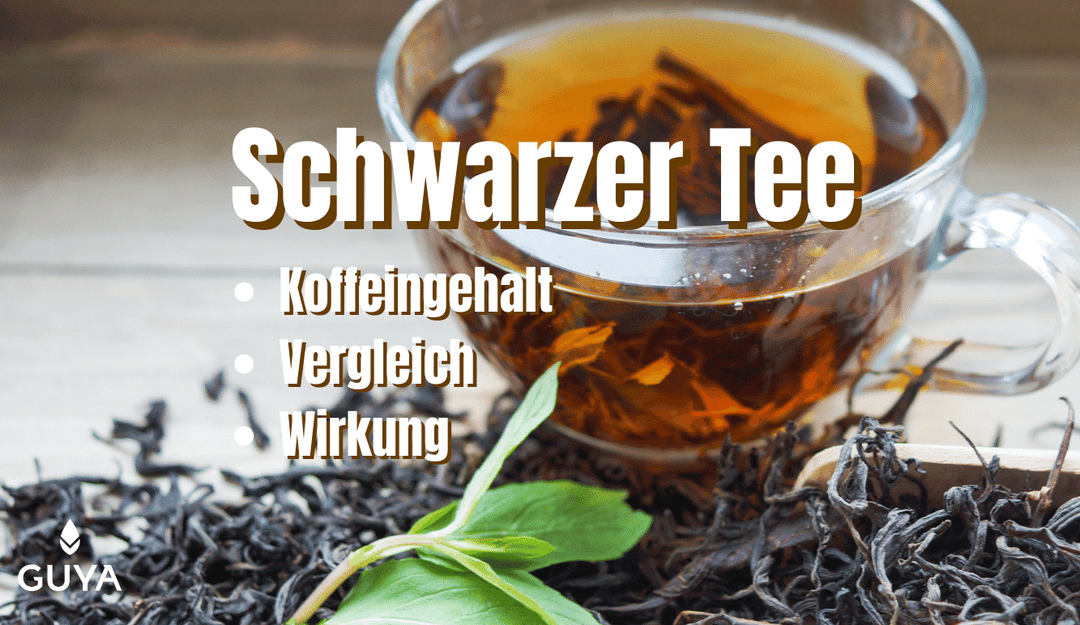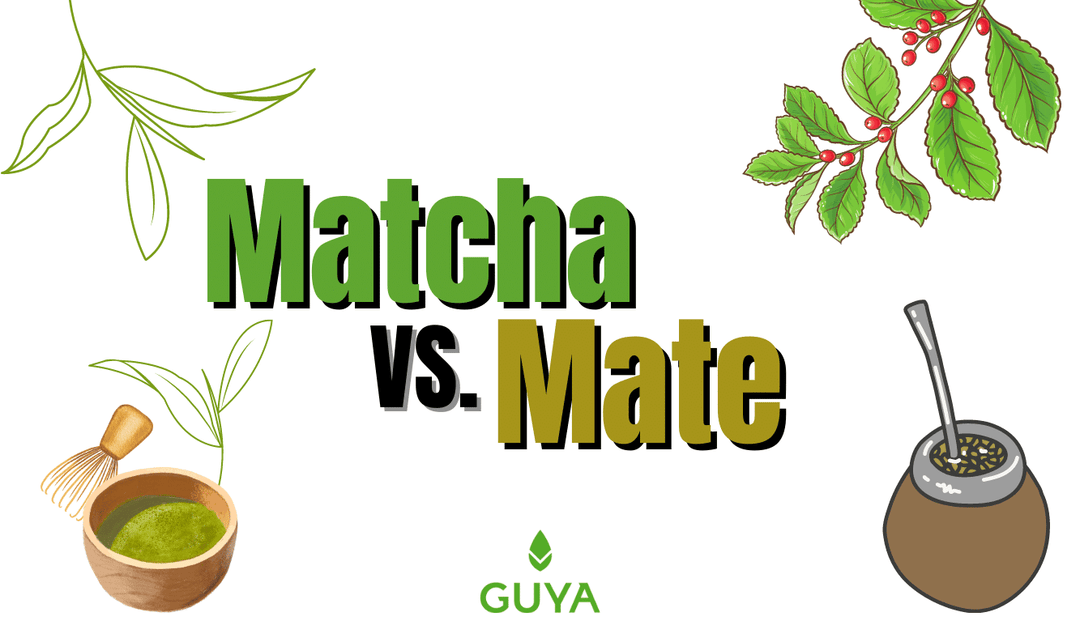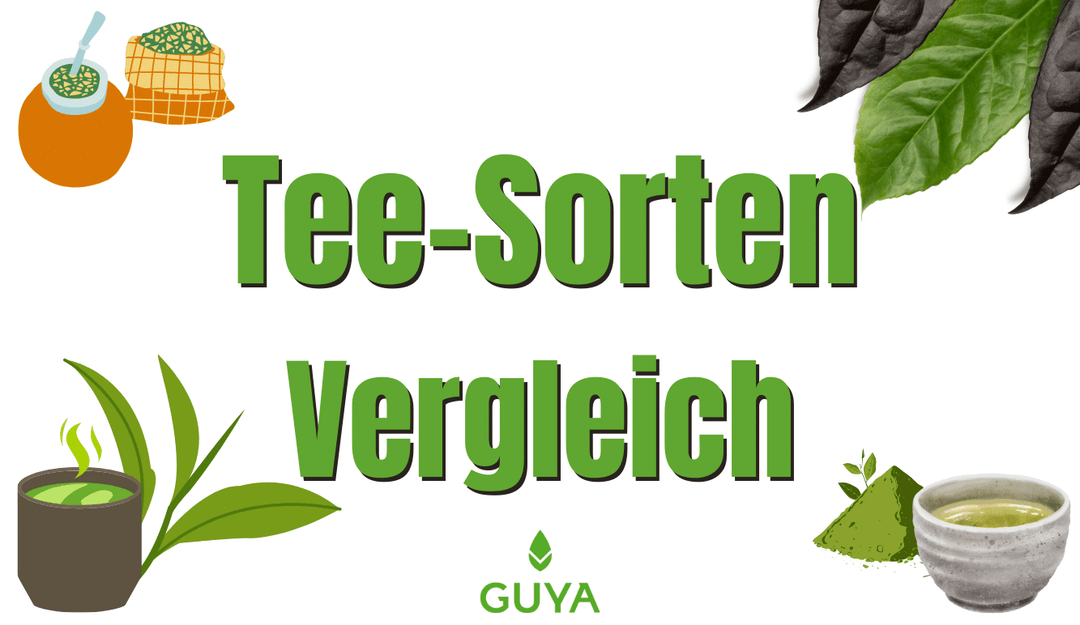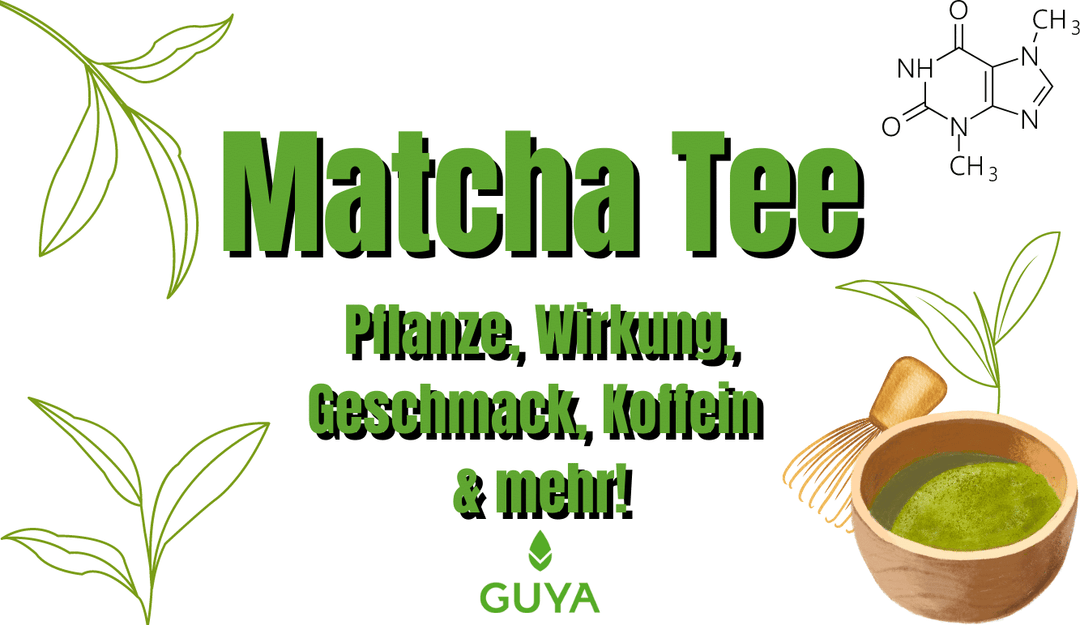Matcha VS coffee - Matcha or coffee?

Introduction
As in our other comparisons of Matcha with Yerba Mate, Tea and Guayusa We would also like to compare the Matcha VS coffee and go into particular on ingredients and effects. In the end, we then emphasize whether Matcha or coffee is the better drink or what is more suitable for which drink.
Contents
- What is Matcha?
- What is coffee?
- Ingredients & effects - Matcha VS coffee
- Taste - Matcha or coffee?
- Conclusion - Matcha vs coffee
1. What is Matcha?
Matcha is powdered by green tea. The word Matcha means "ground tea" in itself. But what we call Matcha these days is a product of Japanese tradition and is more than just a ground standard tea! You can find more about this in our Main Products To Matcha tea.
Matcha is therefore green tea in ground form with a Besodner's intense taste and a somewhat stronger effect than normal green tea. This comes through a special extension and special processing.
Matcha is only in Monocultures grown. There are also no wild Matcha plants with an organic seal. Due to the intensity, as with green tea, the cultivation leads to damage in nature. An alternative cultivation would be Permaculture.
Matcha comes from Japan, but is also produced in low quality in China and other Asian countries. More about the quality levels in our article on Matcha taste.
2. What is coffee?
Coffee, unlike Matcha, is not a leaf, but a bean or the seeds of the coffee plant. This "coffee bean" is dried either with or without pulp (Cascara) and then roasted.
Roasting creates the unmistakable aroma of a coffee. There are two types of coffee: Arabica and Robusta. Rousta coffee is mostly grown in permacultures and therefore has no negative impact on the environment. Arabica, on the other hand, grows in monocultures and therefore does not allow biodiversity. Robusta coffee, like in our Guayusa-Coffee mix is the stronger coffee with up to 3.2 % caffeine.
Coffee is produced in many areas of the world. Each cultivation area has its exclusive aroma, which in addition to roasting is also caused by the different soils and its components.
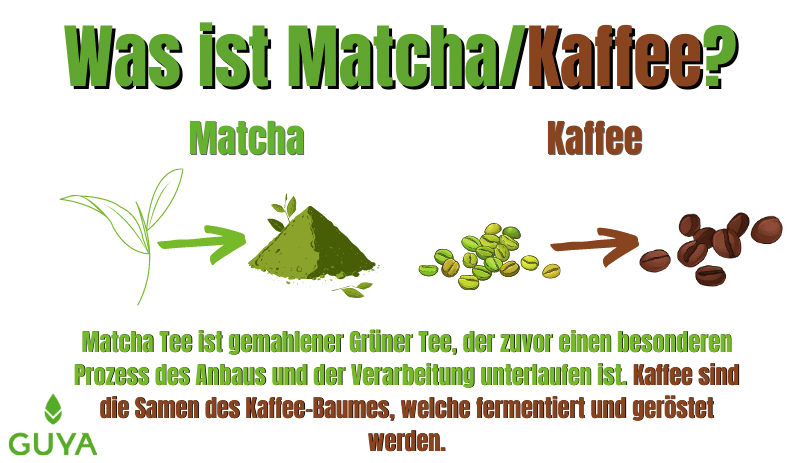
3. ingredients & effects - Matcha VS coffee
Then we would like to compare the ingredients of Matcha and coffee.
3.1. Matcha
Matcha is mainly known for its health -promoting properties. During our research on this multi -part Blog series About Matcha we noticed that almost all studies are about health-related topics and Matcha is an excellent functional food and luxury food in many ways. Matcha is particularly suitable for keeping your body fit and fresh.
Two still detailed articles on Matcha effect and the Matcha ingredients we linked you in the text.
For this Matcha VS coffee comparison, we only want to limit ourselves to the most important aspects of the ingredients and effects. Matcha has the following particularly concise effects.
- Protection against oxidative stress: Matcha has an extremely high content of antioxidants. These protect our cells from oxidation and thus destruction.
- Anti-inflammatory & immunting: phenolic acids and the extremely high chlorophyll content help to reduce inflammation and strengthen our immune system in the long term.
- Increase cognitive skills: the active ingredients L-theanin and caffeine have shown their synergetic effect in many studies. This is aimed at mental properties such as concentration, reaction and memory.
The caffeine content of Matcha can have between 1.9 % and 4.4 %. The L-theanin content has an even greater range of 0.61 mg/g to 44.65 mg/g. We could not find out why these values are drifting too much apart during the research.
With 120,000 to 180,000 Trolox, Matcha has an extremely high antioxidant value that is comparable to that of Guayusa is.
3.2. Coffee
Coffee is also said again and again that this health -positive characteristics should have. However, if you compare the ingredients and their occasions, coffee against Matcha cuts about an apple as a grass. The grass is not bad, but does not have nearly as many positive properties as Matcha in the Matcha VS coffee comparison. Even green coffee has hardly any noticeable quantities Antioxidants.
For this, coffee scores with a better taste, although this is purely subjective! The effect of coffee has the "kick" advantage. This means that the effect of the caffeine begins faster, but also loses its effect faster. This is similar to that Comparison of Matcha with Guayusa: The effect of Guayusa lasts significantly longer.
The content of caffeine in coffee fluctuates from 1.4 % in Arabica and 3.2 % in Robusta. Coffee has no L-Heanin and much fewer antioxidants. The value is around 8,800 Trolox. Matcha has about 13 times more antioxidants.
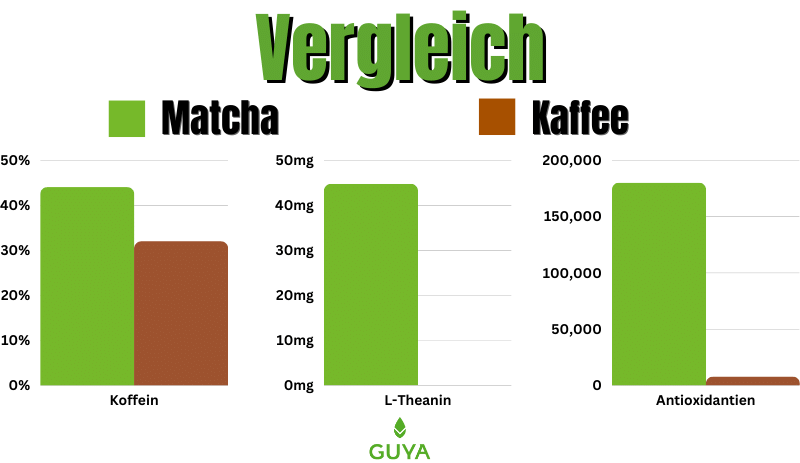
4. Taste - Matcha or coffee?
Whether Matcha or coffee has the better taste would be a purely subjective answer. We would rather take up and compare the general tastes of both drinks.
In comparison Matcha VS coffee, Matcha has significantly fewer bitter substances, despite the fact that normal green tea is often perceived as incredibly bitter. Matcha tastes sweet, grassy, with a strong Umami note, which is perceived as hearty, algigic and marine.
Coffee in comparison Matcha VS coffee has significantly stronger bitter notes. This is on the many Flavanone due to. Matcha, on the other hand, has more amino acids and catechins (antioxidants) that taste more sweet.
By roasting the coffee beans, coffee gets an unmistakable aroma, which can extend from nutty, chocolatey, citrus -like to creamy and buttery. Matcha has a similarly creamy and full-bodied aroma, which comes from the Umami note and foaming the powder.
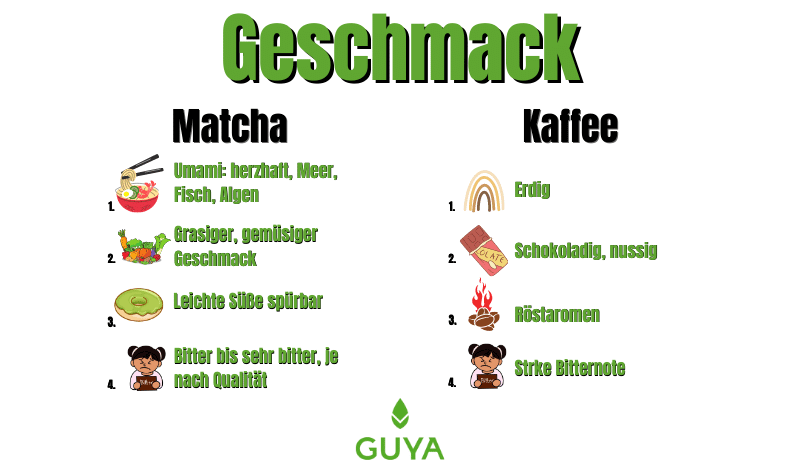
5. Conclusion - Matcha VS coffee
Matcha vs coffee, the question of whether Matcha or coffee is better is difficult to answer. It depends on the perspective or the purpose of use. For us, both caffeinated drinks do not fall into the division of efficient vigilant Effect of Guayusa know and this compared to coffee and Matcha Suitable for a stressful and concentration requirement day.
In a purely comparison of coffee VS Matcha, we think that both drinks are excellent stimulants, but Matcha is ahead due to its positive health properties when it comes to functionality of a food.
Did you become curious? With the voucher code "Blog 5" you get permanent 5 % discount in our Shop on all our Guayusa-Tee products and tEE accessories. In our Newsletter there is even 10 % discount.


